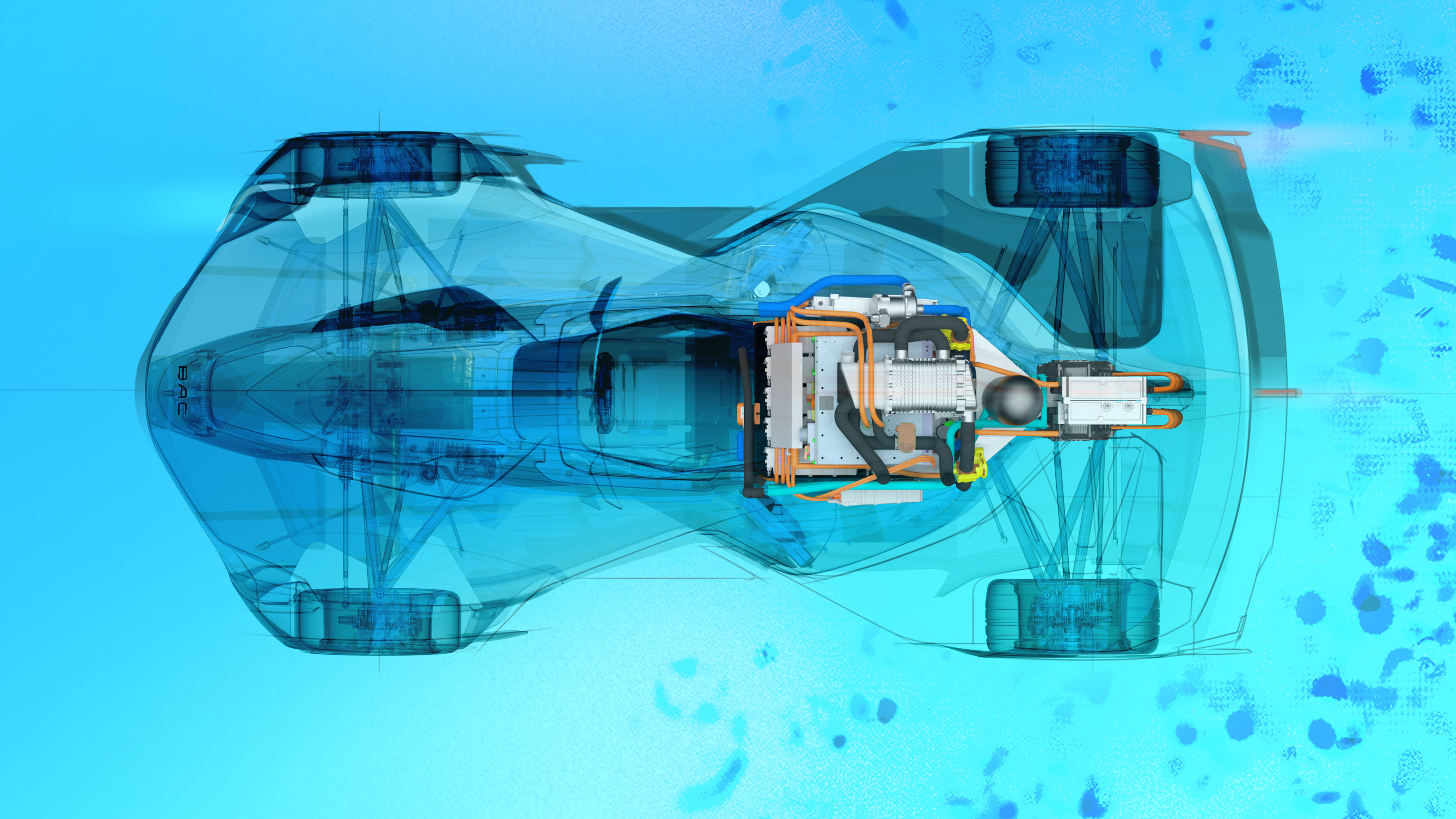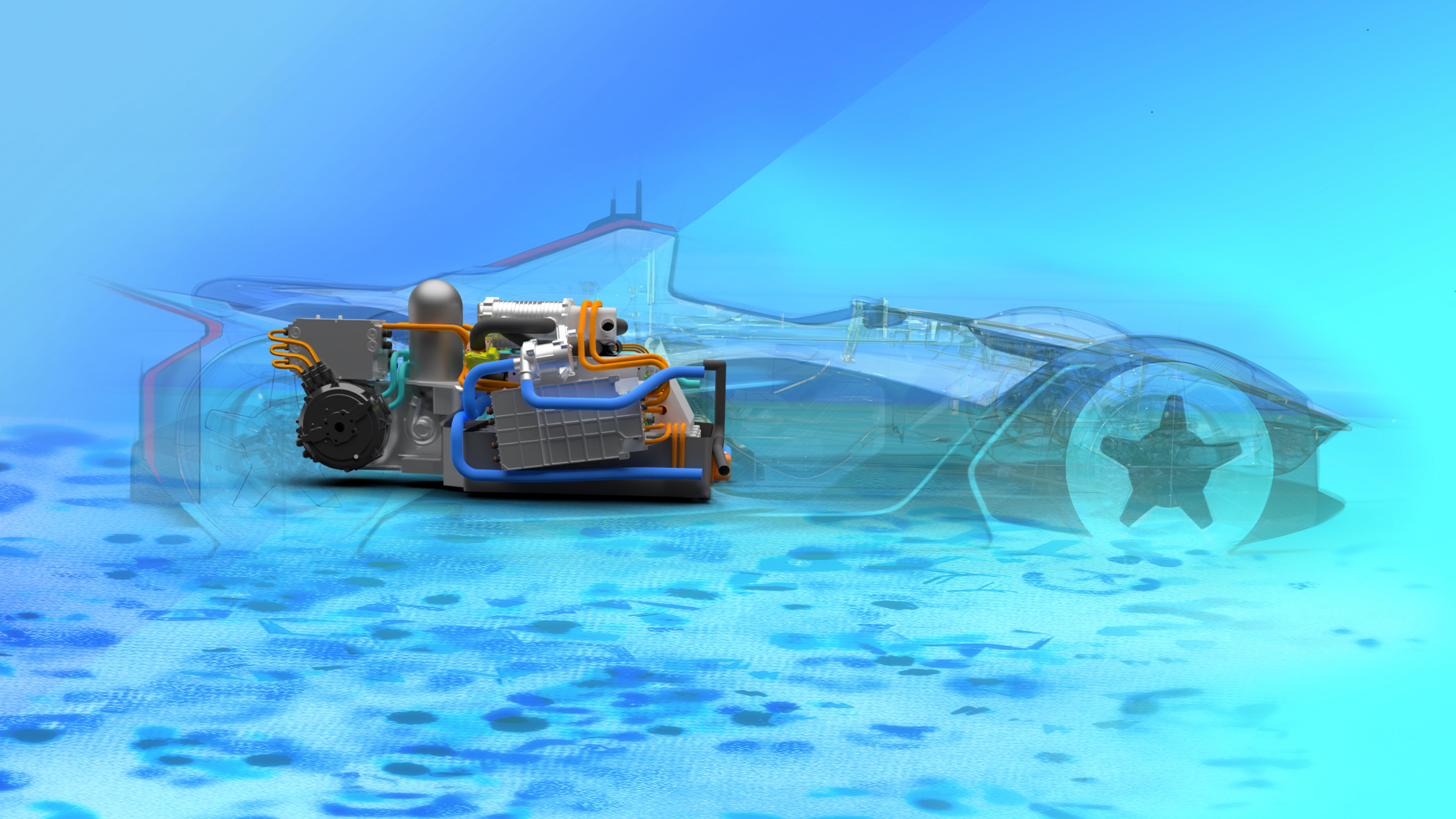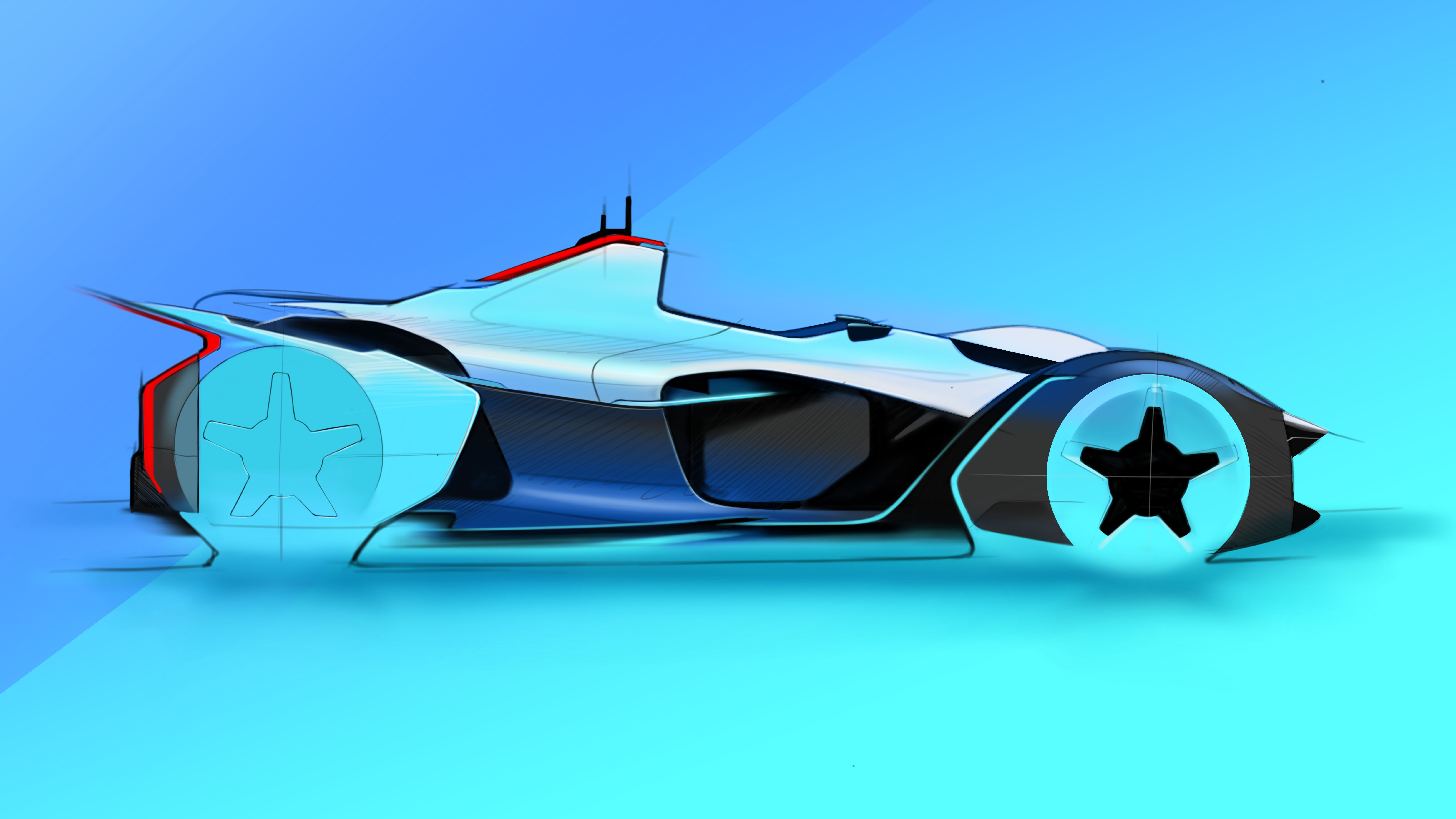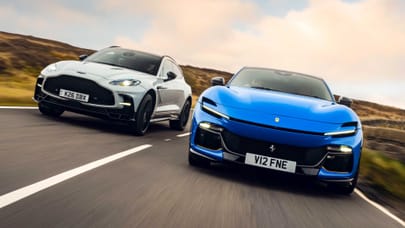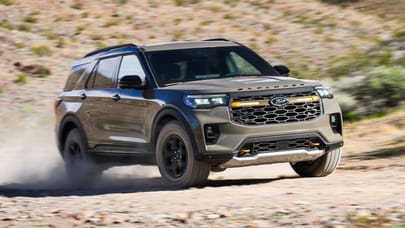
The hydrogen BAC e-Mono lapped Silverstone quicker than the petrol version
First stats on BAC and Viritech’s hydrogen single-seater concept are out, and it’s FAST
BAC, purveyors of the superlative and literally singular Mono supercar, set out to answer the most critical issue facing our changing automotive landscape: can new tech make shiny thing really fast?
Short answer? Yes. Yes it can. The company’s hydrogen-powered e-Mono concept digitally lapped Silverstone a full two seconds quicker than the lighter, combustion-engined version. Pack your bags and jump onboard, folks – next stop, The Future.
The e-Mono is a feasibility study in collaboration with Viritech who specialise in building hydrogen powertrains. BAC didn’t want to just shoehorn in a massive battery and say ‘ta-dah’, but instead make sure the Mono’s fundamentals weren’t messed around with.
“The joy of a track-focused supercar is its agility and responsiveness through corners,” BAC said. And so both it and Viritech set out to create a zero-emission supercar concept “that stayed true to BAC’s founding principle of making the world’s best driving car”. Crucially, the drivetrain had to fit inside the Mono’s existing chassis and body.
So, the battery pack was fitted as far back under the (single) seat as possible, acting as a structural component to reduce the chassis footprint. The fuel cell was slotted in atop the battery, and the compressor hidden inside the Mono R’s air intake pod.
To that, a pair of ‘tiny’ 3kg motors were put on each front wheel – making it an all-wheel-drive Mono – with peak power sitting at a heady 371bhp. The whole concept weighs 665kg which of course is heavier than a regular Mono but still a featherweight in the grand scheme of life.
Still, BAC says there’s further scope for weight reduction by using a carbon case for the battery (saving up to 20kg), and Viritech reckons its new battery module would save yet more weight (30kg). “This would bring the total vehicle weight to within 100kg of the current Mono-R,” BAC says.
Right, let’s end on some stats. The e-Mono was put through a series of simulation tests, where it recorded a 0-62mph time of 2.2s, a top speed of 165mph, and ‘realistic’ range of 140 miles/10 fast laps of Silverstone.
Speaking of which, the Mono-R posted a 2m 6.3s lap time, while the e-Mono – in simulations – recorded a time of 2m 4.23s.
“Driving enthusiasts around the world will be as delighted as we are by this feasibility study,” said BAC boss Neill Briggs. “To bring e-Mono closer to production, BAC is looking for suitable funding to proceed to proof of concept stage, and we welcome conversations with interested parties.”
Top Gear
Newsletter
Thank you for subscribing to our newsletter. Look out for your regular round-up of news, reviews and offers in your inbox.
Get all the latest news, reviews and exclusives, direct to your inbox.
Trending this week
- 2026 TopGear.com Awards
"Engineering at the cutting edge": why the Ferrari F80 is our hypercar of the year




